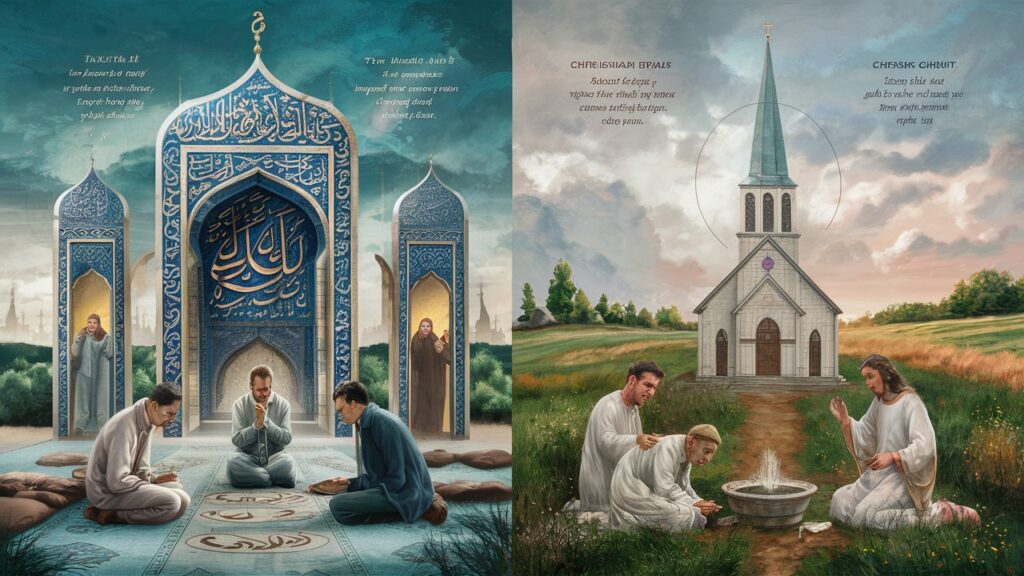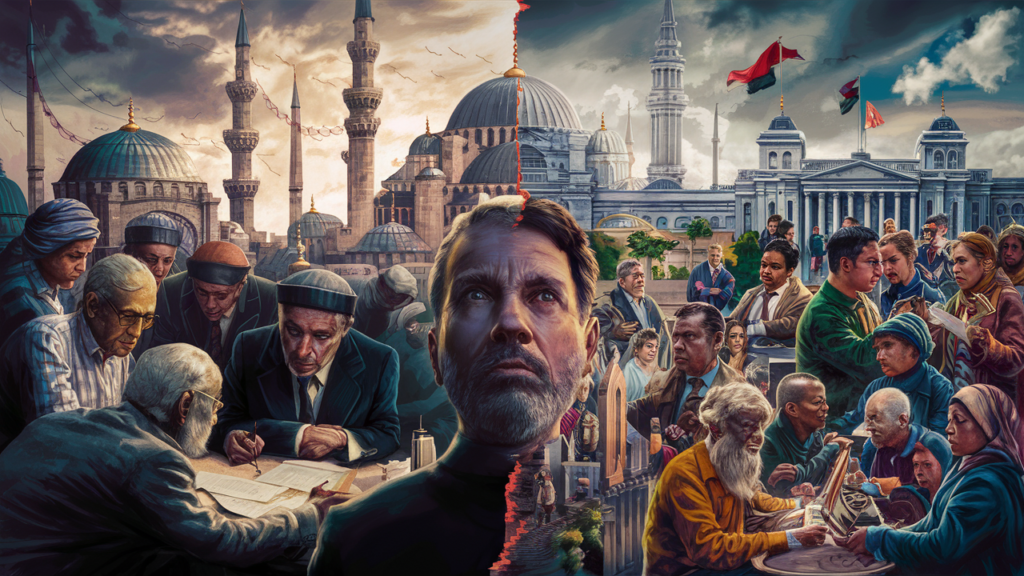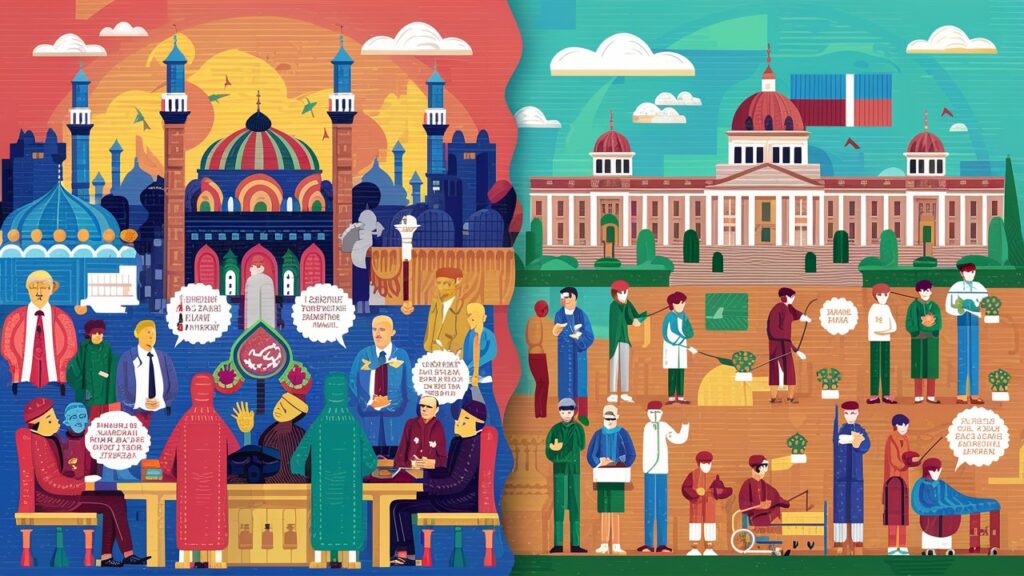When we dive into the riveting world of comparative religion, few topics spark as much intrigue as the exploration of Islam and Christianity. These two faiths, towering monoliths in the religious landscape, have shaped civilizations, guided billions of lives, and even, at times, clashed on the global stage. But what really sets them apart, both in the corridors of power and in the silent whispers of the soul? Buckle up, as we embark on a journey through time, across continents, and into the heart, to uncover the essence of these differences.
Spiritual Foundations: Diverging Paths to the Divine

Islam: Submission and Unity
At the heart of Islam is the concept of submission to the will of Allah, a path laid out in the Quran, believed to be the literal word of God as revealed to the Prophet Muhammad. Islam emphasizes the oneness of God (Tawhid), a profound spiritual equality among believers, and a direct, unmediated relationship with the divine. The Five Pillars of Islam (Shahada, Salah, Zakat, Sawm, and Hajj) offer a practical guide to living this faith, encompassing everything from daily prayers to the pilgrimage to Mecca.
Christianity: Love and Trinity
Christianity, rooted in the life and teachings of Jesus Christ as captured in the New Testament, offers a different spiritual perspective. Central to Christian doctrine is the concept of the Trinity, a unique union of Father, Son, and Holy Spirit. Love is the guiding principle here—love for God, and love for one’s neighbor as oneself. The path to salvation in Christianity is through faith in Jesus Christ, who is believed to have died for humanity’s sins and resurrected, offering eternal life to believers.
Political Histories: Power, Influence, and Identity

Islam: Caliphates and Modern Nations
The political history of Islam is a tale of empires, caliphates, and modern nation-states. From the Rashidun and Umayyad to the Ottoman Empire, Islamic governance has evolved, but always with the Quran and Islamic law (Sharia) as its backbone. Today, the political influence of Islam can be seen in various forms, from theocracies like Iran to secular states with Muslim majorities. The concept of the Ummah, or global community of Muslims, continues to influence international relations and political dynamics within and across nations.
Christianity: Church and State
Christianity’s political journey weaves through the establishment of the Roman Catholic Church, the schism with Eastern Orthodoxy, and the Protestant Reformation, each leaving indelible marks on Western civilization. The relationship between church and state has been a contentious and evolving saga, with periods of tight interweaving (as seen in the Holy Roman Empire) and stark separation (manifested in the secularism of modern Western democracies). Christian political thought has significantly influenced concepts of human rights, democracy, and social justice.
Real-Life Examples: Faith in Action

To breathe life into these differences, let’s zoom in on real-life examples that illustrate how Islam and Christianity have uniquely influenced societies and individuals.
Spiritual Practice: Ramadan vs. Lent
Consider the Islamic month of Ramadan and the Christian season of Lent—both periods of fasting, reflection, and community. Yet, their observance highlights distinct spiritual teachings: Ramadan’s fast from dawn till dusk underscores Islam’s emphasis on discipline and community unity, while Lent’s 40 days of fasting, prayer, and almsgiving reflect Christianity’s focus on repentance and preparation for Easter.
Political Impact: The Role of Religious Leaders
The political roles of religious leaders in Islam and Christianity further illuminate differences. In some Muslim-majority countries, religious figures hold significant political power, directly influencing governance in line with Sharia law. Contrast this with the varied roles of Christian leaders in politics, from the moral authority of the Pope to the advocacy for social justice by Protestant leaders, which often operate within a framework of separation between church and state.
Challenges and Common Ground
While exploring these differences, it’s crucial to acknowledge the challenges both faiths face in a globalized world—extremism, secular pressures, and the struggle for relevance in rapidly changing societies. Yet, in their quests for meaning, justice, and peace, Islam and Christianity also share common ground, offering insights into the human condition and the pursuit of a higher purpose.
Conclusion: A Tapestry of Belief
In the grand tapestry of belief, Islam and Christianity, with their rich histories, profound spiritual insights, and complex political landscapes, offer more than just contrasts; they provide a mirror


